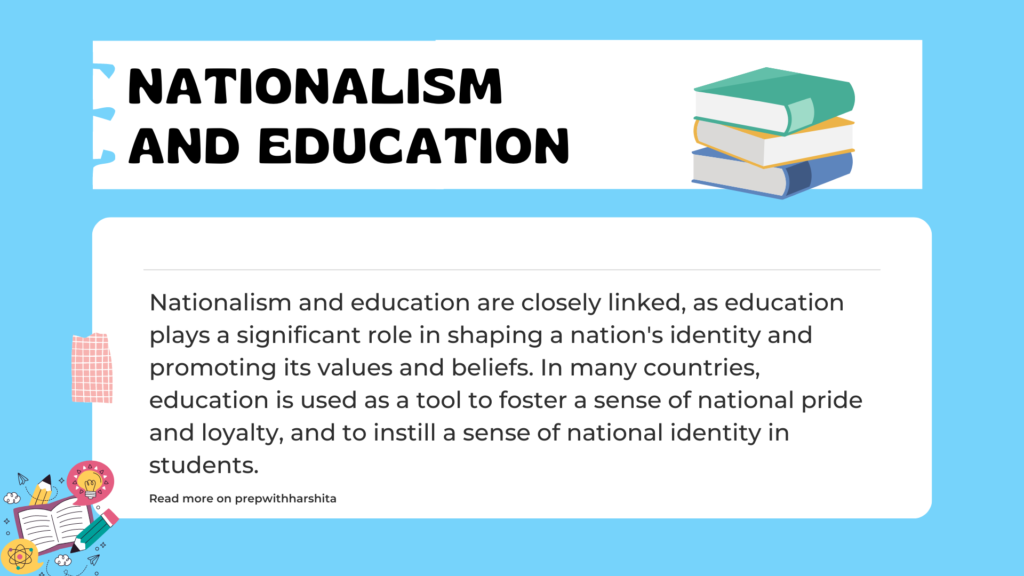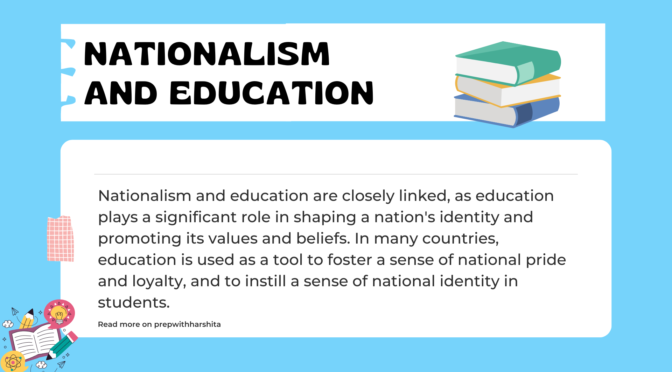Nationalism and education are closely linked, as education plays a significant role in shaping a nation’s identity and promoting its values and beliefs. In many countries, education is used as a tool to foster a sense of national pride and loyalty and to instill a sense of national identity in students.
Nationalism can be defined as a belief in the superiority and importance of one’s nation and its people, often with a focus on a common language, history, and culture. In some cases, education can be used to promote a narrow form of nationalism that excludes or denigrates other cultures and beliefs. However, in more positive forms, education can promote a broader understanding and appreciation of different cultures, histories, and perspectives, while still emphasizing the unique contributions and identity of one’s own nation.
Education can also be used to promote social and political values that are central to nationalism, such as democracy, civic responsibility, and respect for the rule of law. In many countries, education is seen as a key mechanism for building a cohesive and unified society, as well as for preparing students to participate in political and economic life.
At the same time, education can also be a site of contestation and conflict, particularly in multicultural societies where there are different views about what it means to be a member of the nation. Debates about the role of language, history, and culture in education can often be contentious, with different groups advocating for their own views and interests.
Also Read: Economics of Brain Drain
Overall, the relationship between nationalism and education is complex and multifaceted, with both positive and negative aspects. It is important to recognize the potential of education to promote a more inclusive and tolerant form of nationalism that values diversity and respect for others, while also being aware of the risks of promoting a narrow and exclusionary form of nationalism that can lead to conflict and division.




